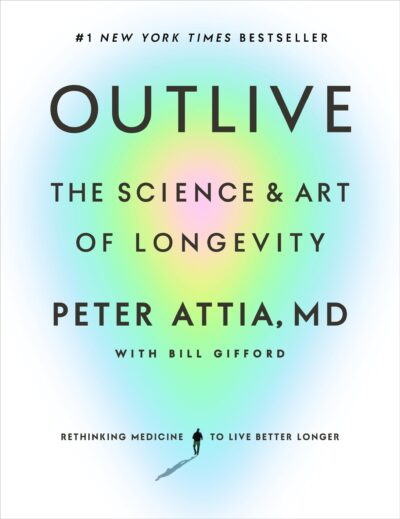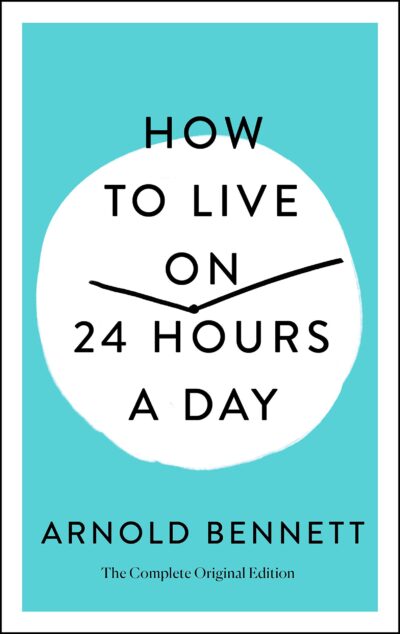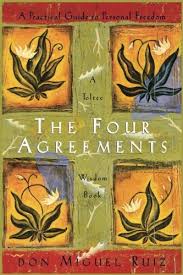68 Results with the "Self-help" genre
Adventure Fiction (1164)
Biography (435)
Business & Finance (1)
Children's Literature (124)
Comics (6)
Culture (51)
Drama (123)
Dystopian (29)
Fable (86)
Fantasy (1132)
Fantasy (203)
Fiction (1010)
Finance (1)
Gothic Fiction (12)
Historical Fiction (615)
History (122)
Horror (56)
Lifestyle (36)
Literary (404)
Literary Fiction (207)
Memoir (113)
Mystery (422)
Non-fiction (87)
Novel (549)
Paranormal Fiction (96)
Philosophical (182)
Philosophy (45)
Poetry (249)
Political Fiction (14)
Politics (42)
Practical (32)
Psychological (4)
Psychological Thriller (108)
Relationship (6)
Romance Novel (716)
Romantic Melodrama (14)
Satire (91)
Science (46)
Science Fiction (345)
Society (65)
Society (2)
Spiritual Growth (1)
story (2)
Thriller (704)
True Crime (56)
view (11)
Women's Fiction (2)
Young Adult (233)
-
 Chapter 16: Learning to Inhabit Your Body: Yoga. Yoga offers more than physical benefits—it facilitates a deeper connection with our bodies and emotions, fostering a sense of inner peace and self-acceptance. When we begin to focus on the body, we activate a natural inclination toward self-care that emerges from within. This shift in attention, away from societal pressures and external standards, allows us to experience a new level of authenticity in how we care for ourselves. By practicing mindfulness…
Chapter 16: Learning to Inhabit Your Body: Yoga. Yoga offers more than physical benefits—it facilitates a deeper connection with our bodies and emotions, fostering a sense of inner peace and self-acceptance. When we begin to focus on the body, we activate a natural inclination toward self-care that emerges from within. This shift in attention, away from societal pressures and external standards, allows us to experience a new level of authenticity in how we care for ourselves. By practicing mindfulness…-
360.1 K • Ongoing
-
-
Chapter
Acknowledgments
 Acknowledgments in Outlive provides readers with a heartfelt and behind-the-scenes look at the collaborative effort and personal resilience that helped bring the book to life. Originally placed on hold in early 2020 due to setbacks with the manuscript submission, the project faced considerable obstacles when the authors were let down by their book agent and publisher. However, Michael Ovitz’s timely intervention became a pivotal moment, helping revitalize the project and enabling it to move forward.…
Acknowledgments in Outlive provides readers with a heartfelt and behind-the-scenes look at the collaborative effort and personal resilience that helped bring the book to life. Originally placed on hold in early 2020 due to setbacks with the manuscript submission, the project faced considerable obstacles when the authors were let down by their book agent and publisher. However, Michael Ovitz’s timely intervention became a pivotal moment, helping revitalize the project and enabling it to move forward.…-
87.7 K • Ongoing
-
-
Chapter
Chapter XI — Serious Reading
 Chapter XI encourages readers to consider the true value of what they read during their limited free time. While it is easy and often enjoyable to reach for a familiar novel, the author gently presses that such material rarely exercises the full strength of the intellect. Engaging the mind in serious reading—literature that demands effort, thought, and reflection—builds a kind of mental endurance that is essential for personal growth. This chapter isn’t meant to disparage fiction entirely, as even…
Chapter XI encourages readers to consider the true value of what they read during their limited free time. While it is easy and often enjoyable to reach for a familiar novel, the author gently presses that such material rarely exercises the full strength of the intellect. Engaging the mind in serious reading—literature that demands effort, thought, and reflection—builds a kind of mental endurance that is essential for personal growth. This chapter isn’t meant to disparage fiction entirely, as even…-
62.8 K • Ongoing
-
-
 The Four Agreements by Don Miguel Ruiz offers practical wisdom for personal freedom, teaching four simple principles to break free from limiting beliefs and find peace: Be impeccable with your word, Don’t take anything personally, Don’t make assumptions, and Always do your best. A powerful, transformative read for personal growth.
The Four Agreements by Don Miguel Ruiz offers practical wisdom for personal freedom, teaching four simple principles to break free from limiting beliefs and find peace: Be impeccable with your word, Don’t take anything personally, Don’t make assumptions, and Always do your best. A powerful, transformative read for personal growth.-
28.5 K • Jan 8, '25
-
4.2 K • Jan 8, '25
-
4.6 K • Jan 8, '25
-
-
 Chapter 6: Losing Your Body, Losing Your Self, the journey of healing often begins with learning to live with the questions themselves, as Rainer Maria Rilke beautifully expressed in his letters to a young poet. Just as with the challenges in our emotional and psychological states, the answers to our struggles may come slowly, without our direct awareness. Instead, we might find our way toward understanding through the simple act of living with the discomfort of the questions. Sherry walked into my…
Chapter 6: Losing Your Body, Losing Your Self, the journey of healing often begins with learning to live with the questions themselves, as Rainer Maria Rilke beautifully expressed in his letters to a young poet. Just as with the challenges in our emotional and psychological states, the answers to our struggles may come slowly, without our direct awareness. Instead, we might find our way toward understanding through the simple act of living with the discomfort of the questions. Sherry walked into my…-
360.1 K • Ongoing
-
-
 Chapter 1 introduces the central theme of longevity by exploring the deeply personal experiences of a physician who has witnessed death in its various forms, shaping his understanding of medicine and aging. The author recalls a pivotal moment during medical school when he encountered patient death for the first time, an experience that profoundly impacted his perspective on healthcare. This moment, followed by years of seeing both acute and chronic deaths during his residency at Johns Hopkins, led him to…
Chapter 1 introduces the central theme of longevity by exploring the deeply personal experiences of a physician who has witnessed death in its various forms, shaping his understanding of medicine and aging. The author recalls a pivotal moment during medical school when he encountered patient death for the first time, an experience that profoundly impacted his perspective on healthcare. This moment, followed by years of seeing both acute and chronic deaths during his residency at Johns Hopkins, led him to…-
87.7 K • Ongoing
-
-
Chapter
Chapter I — The Daily Miracle
 Chapter I begins by presenting a quiet but profound truth—every person receives twenty-four hours a day, no more, no less. This equal distribution of time cuts through wealth, status, and circumstance. Whether one is a scholar or a laborer, rich or poor, time is dealt fairly to all. It is neither earned nor bought. And yet, despite its fairness, many treat this resource with casual neglect. The author compares time to money, showing that while people spend years learning how to manage finances, almost…
Chapter I begins by presenting a quiet but profound truth—every person receives twenty-four hours a day, no more, no less. This equal distribution of time cuts through wealth, status, and circumstance. Whether one is a scholar or a laborer, rich or poor, time is dealt fairly to all. It is neither earned nor bought. And yet, despite its fairness, many treat this resource with casual neglect. The author compares time to money, showing that while people spend years learning how to manage finances, almost…-
62.8 K • Ongoing
-
-
 Chapter 17: Putting the Pieces Together: Self-Leadership. In life, we all experience moments where parts of ourselves seem to take over. For example, when confronted with trauma, we develop coping mechanisms that help us survive but may also fragment our sense of self. One of the key aspects of self-leadership is understanding and managing these internal parts, each with its own needs and responses. This process of integration is central to healing, especially for those who have faced significant trauma or…
Chapter 17: Putting the Pieces Together: Self-Leadership. In life, we all experience moments where parts of ourselves seem to take over. For example, when confronted with trauma, we develop coping mechanisms that help us survive but may also fragment our sense of self. One of the key aspects of self-leadership is understanding and managing these internal parts, each with its own needs and responses. This process of integration is central to healing, especially for those who have faced significant trauma or…-
360.1 K • Ongoing
-
-
Chapter
Chapter XII — Dangers to Avoid
 Chapter XII casts a thoughtful spotlight on the hidden traps that often ensnare those earnestly attempting to make the most of their time. While the ambition to better use every hour of the day is admirable, the author makes it clear that this ambition must be tempered with self-awareness and humility. There’s a certain irony in how the pursuit of personal improvement can unintentionally foster arrogance. Becoming a prig—someone who assumes a moral superiority due to a new lifestyle—alienates others…
Chapter XII casts a thoughtful spotlight on the hidden traps that often ensnare those earnestly attempting to make the most of their time. While the ambition to better use every hour of the day is admirable, the author makes it clear that this ambition must be tempered with self-awareness and humility. There’s a certain irony in how the pursuit of personal improvement can unintentionally foster arrogance. Becoming a prig—someone who assumes a moral superiority due to a new lifestyle—alienates others…-
62.8 K • Ongoing
-
- Previous 1 … 5 6 7 Next

